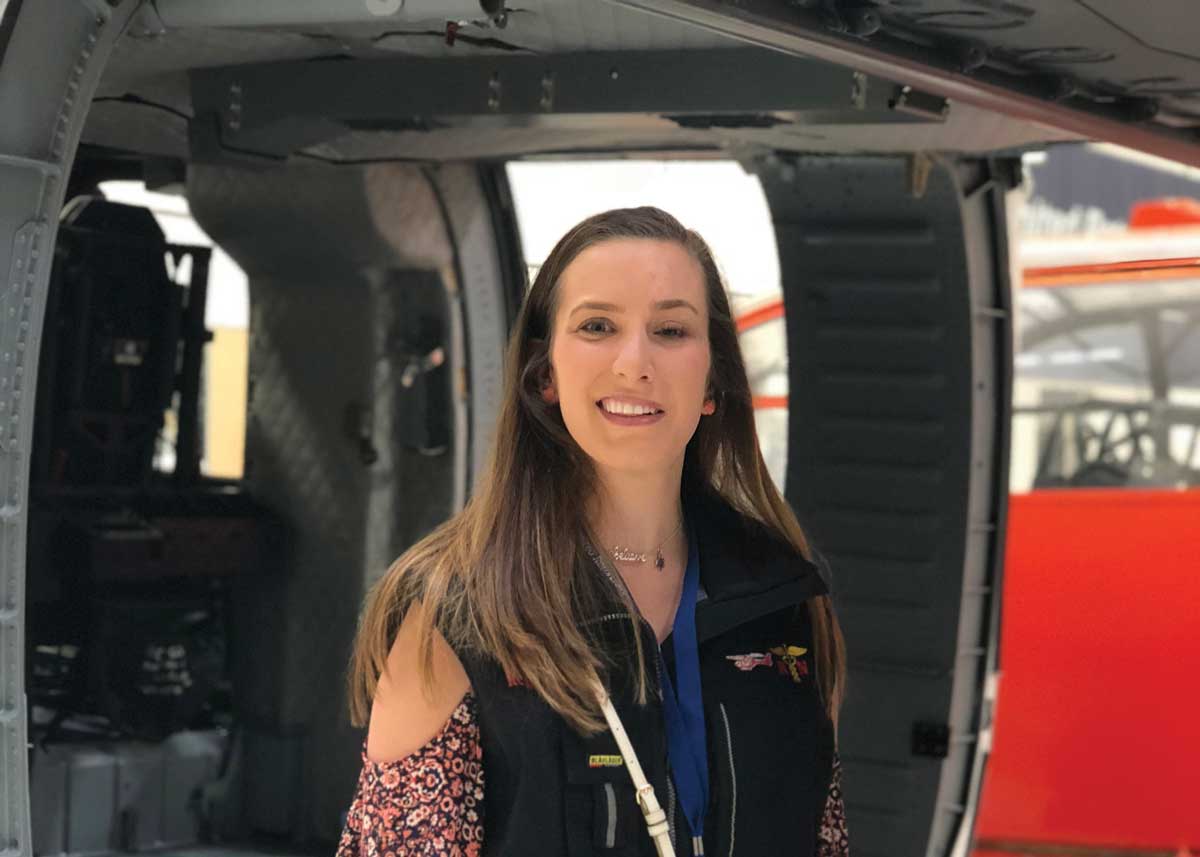Adversity leads to career for Whitney Corby

The past year has been a whirlwind for Whitney Corby ’17. A brief summer “staycation” in Maryland followed three temporary assignments as a traveling nurse for Medical Solutions — one in Boston, two in Georgia.
In addition to dealing with the demands of her job, Corby has aftereffects of a traumatic brain injury she suffered in 2013 when her car slid on black ice and hit a tree. A student at the University at Albany at the time of the crash, Corby withdrew to undergo intense physical therapy. Her recovery inspired her to pursue nursing at Binghamton.
A year after graduating, she was named Patient of the Year by the Medevac Foundation, which supports research, education and outreach for air and ground medical transportation.
“My brain can only take so much, and overstimulation makes me very tired,” she says. “I see a lot of sick patients in my job, but when I look at them, I remember I was in their position. So I work very hard to help them through so they have an opportunity to be like me.”
In addition to helping people, Corby enjoys the variety of being a traveling nurse. Assignments are typically for 13 weeks, and she can either re-up or change scenery. Her specialty is neurology, but she has done many shifts in the floater pool, where her assignment could differ each day — anything from women’s health to gastrointestinal to orthopedics.
“Binghamton’s nursing program prepared me well,” she says. “A lot of people say, ‘You’ve only been a nurse for two years? You carry yourself very well.’ And, I owe that to Binghamton. I also owe it to traveling. Without it, my practice would be a little more stagnant.”
In the long run, Corby wants to improve patient care on a larger scale. She’s enrolled in a master’s degree program in healthcare policy and wants to complete a practicum with Air Methods, one of the country’s largest community-based providers of air medical services. The organization airlifted Corby following her accident.
“We need to do something about the lack of Medicaid and Medicare reimbursements to air ambulance providers,” she says. “I’ve already been doing some work in this area. I traveled to Washington with Air Methods to testify in front of Congress. The federal government needs to adjust its reimbursements so medical air bases can stay open, especially in rural areas.”

